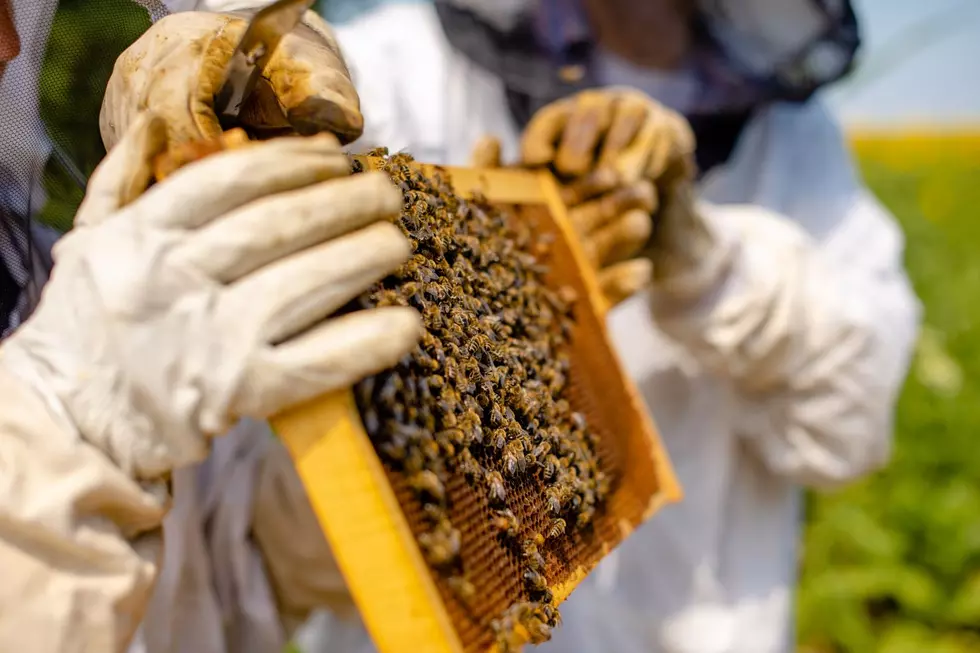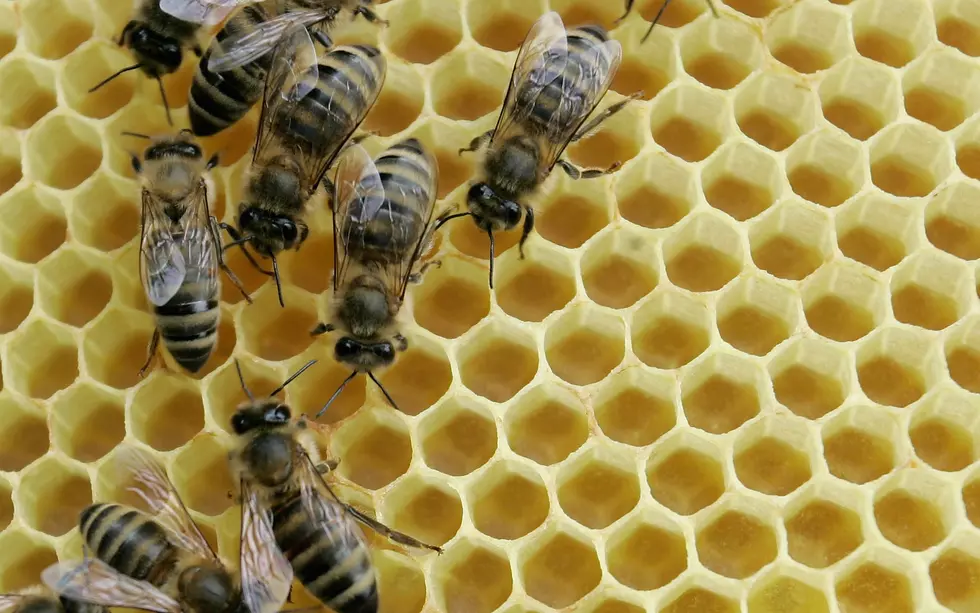
In The World Of Beekeeping, Wyoming’s Not That Great
There are studies that come out quite often that I blow off, because I don't find much merit in them. Usually a researcher or professor that is doing a study about places they've probably never been or never long enough to really get the real story.
One that caught my eye is the study that says Wyoming is toward the bottom of the list for beekeeping. As a matter of fact, of 40 listed states in the study, Wyoming is #36 for beekeeping. This study seems to be pretty accurate.
According to Wyoming Business.org, honey is a part of the state's important agriculture industry and is a multi-million dollar part of that industry. Bee pollination is a huge part of the ag in the state, but it's hard to really put a solid number on it though.
According to Catherine Wissner, from the University of Wyoming's Laramie County extension, there are about 2,000 apiary locations (bee home locations) in the state and every hive they have can make them about $92.50 per year. Beekeeper Don Bryant has about 8,000 hives...you can do that math. Beekeeping definitely is a money maker, just not nearly as big as in other states.
The problem that the state has is actually pretty right on with what the study says...it's not a shortage of bees, but a shortage of beekeepers that cause the issue.
Across the U.S., honeybee colonies are a multi-billion dollar value to agriculture. Here in Wyoming we have our setbacks though. The need to transport bees to other states is costly and the long winters take it's toll on the bee population.
In Wyoming, we have about 14 different varieties of bees.
- Bumblebee's - Most common bee in Wyoming
- Honey Bees - Only bees that make honey
- Large Carpenter Bees
- Small Carpenter Bees
- Long-Horned Bees
- Sweat Bees
- Squash Bees
- Digger Bees
- Polyester Bees
- Masked Bees
- Cuckoo Bees
- Mason Bees
- Leaf Cutter Bees
- Miner Bees
There's obviously money in raising bees, but the frustrations are just like many businesses. Don Bryant told the Wyoming Business Council, some of those frustrations:
- Efficient farm equipment not leaving room for wildflowers to grow at the end of rows
- Many Wyoming crops don't flower, so don't need bees
- Weed killer is eliminating nutrition for bees
There's still a great market for beekeeping in Wyoming. Like having smaller amounts of hives and selling the honey locally and doing it as a hobby.
Buying your honey locally and not from a big box store is one way you can help the bee industry.
If you're looking for a new hobby or line of work, check out this video to find out what you need to do to get started.



